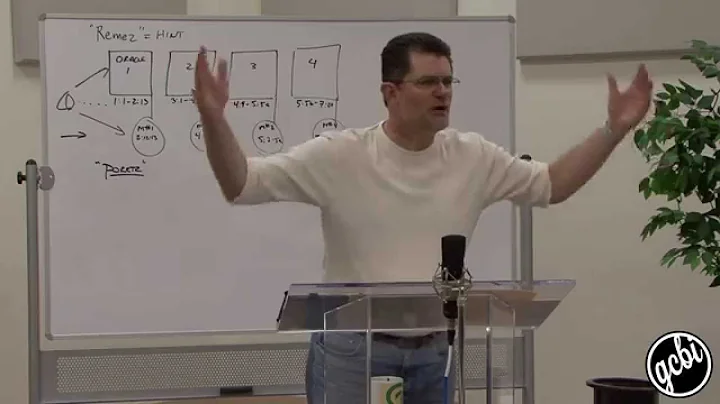Unraveling the Morality Mystery: Divine Command Theory Explored
Table of Contents:
- Introduction
- The Bible: A Source of Morality
- The Divine Command Theory
- Objections to Divine Command Theory
- The Euthyphro Problem
- The First Horn: Right Actions are Right because God Commands them
- The Second Horn: Right Actions are Commanded by God because they are Right
- Problems with both Horns of the Dilemma
- Knowing God's Commands
- Limitations of Divine Command Theory
- Conclusion
The Bible and Morality: Exploring the Divine Command Theory
Introduction
In this article, we will delve into the topic of morality and its connection to the Bible. For billions of people around the world, the Bible is the ultimate source of moral guidance. It provides a rulebook for human behavior, believed to be authored by a divine entity. However, this belief raises questions and dilemmas that have been debated for centuries. One prevailing ethical theory, known as the Divine Command Theory, posits that what is moral or immoral is commanded by a divine being. In this article, we will explore the Divine Command Theory, its objections, and the famous Euthyphro Problem. We will also discuss the two horns of the dilemma presented by Socrates and examine the limitations of this theory.
The Bible: A Source of Morality
The Bible holds a significant place in the lives of billions of people. It serves as the foundation for moral values and ethical guidance. According to the Book of Deuteronomy and Leviticus, the Bible prescribes various rules and restrictions, including what fabrics to wear, hairstyles to avoid, and prohibitions on tattoos and gossip. For many, the Bible is considered the ultimate rulebook for human morality, as it is believed to originate from a supreme deity. The Divine Command Theory offers a simple explanation for the origin of morality - it derives directly from God.
The Divine Command Theory
The Divine Command Theory posits that morality is determined by the commands of a divine entity. Whether it is the Judeo-Christian God or another deity, the belief is that what is moral and immoral is dictated by a higher power. This theory has been prevalent throughout human history, as people sought guidance from the gods on how to behave. One of the key advantages of this theory is its simplicity - morality is established through divine commands. It also solves the grounding problem faced by other ethical systems by establishing God as the foundation.
Objections to Divine Command Theory
While the Divine Command Theory offers a straightforward explanation for the source of morality, it also presents a dilemma. Philosophers, including Plato, have raised objections to this theory. Plato, in his dialogue called the Euthyphro, questions the relationship between God and moral commands. The Euthyphro Problem, as it is known, poses the following questions: Are right actions right because God commands them, or does God command them because they are right? These two scenarios have significant implications and lead to various objections to the Divine Command Theory.
The Euthyphro Problem
The Euthyphro Problem remains a challenging dilemma for advocates of the Divine Command Theory. Choosing the first horn of the dilemma implies that right actions are right simply because God commands them. This view suggests that God's command alone determines what is right and what is wrong. However, this raises concerns about the arbitrariness of morality. It implies that goodness is defined solely by God's commands, making the concept of morality vacuous. Furthermore, if morality is solely determined by God's commands, it creates the possibility of a radically changing ethical landscape.
The Second Horn: Right Actions Commanded by God because they are Right
The second horn of the Euthyphro dilemma proposes that God commands actions because they are inherently good. This perspective implies that there is a standard of goodness external to God. However, this challenges the notion of God's omnipotence and raises questions about the origin of value. If value exists independently of God, it suggests that something or someone other than God has created it. This poses difficulties for those who believe that God is the creator of everything.
Problems with both Horns of the Dilemma
Both horns of the Euthyphro dilemma present significant problems for the Divine Command Theory. Choosing the first horn makes morality arbitrary and dependent on the whims of God's commands. On the other hand, selecting the second horn challenges the omnipotence of God and introduces the idea of an external standard of goodness. Additionally, if there exists a standard of goodness to which God must adhere, it raises questions about why we cannot access this standard directly and rely on religious texts as mere guides.
Knowing God's Commands
A crucial question in the Divine Command Theory is how we discern God's commands. Religious texts, such as the Bible, contain various explicit instructions, but not all of them are considered binding by most believers. The Bible contains rules about fabrics, hairstyles, and other regulations that are often disregarded. This raises questions about the selection of binding commands and the role of interpretation in understanding God's will. If humans have the agency to decide which commands are binding, it blurs the line between commandments and recommendations.
Limitations of Divine Command Theory
While the Divine Command Theory has been a longstanding ethical theory, it faces several limitations. Its reliance on God's commands as the sole basis for morality raises logical and philosophical questions. The Euthyphro Problem offers a dilemma that challenges the theory's coherence. The theory also struggles to provide a comprehensive answer to questions about the ethical nature of moral rules, their origins, and their universality. These limitations have led many ethicists, including theistic ones, to reject the Divine Command Theory in favor of alternative moral theories.
Conclusion
The Divine Command Theory has long been held as a prominent ethical theory, attributing the source of morality to divine commands. However, the Euthyphro Problem, objections from philosophers like Plato, and questions about knowing God's commands challenge the viability of this theory. The dilemma presented by Socrates forces us to grapple with the implications of both horns of the dilemma. Despite its limitations, the Divine Command Theory continues to shape ethical discussions and remains a significant theory in the study of morality.
Highlights:
- The Bible serves as the source of morality for billions of people, believed to originate from a divine entity.
- The Divine Command Theory posits that what is moral or immoral is commanded by a divine being.
- The Euthyphro Problem presents a dilemma: Are right actions right because God commands them, or does God command them because they are right?
- Choosing either horn of the dilemma presents significant challenges for the Divine Command Theory.
- The theory faces limitations in its coherence, explicating God's commands, and providing a comprehensive ethical framework.
FAQ:
Q: What is the Divine Command Theory?
A: The Divine Command Theory posits that what is moral or immoral is commanded by a divine being.
Q: What is the Euthyphro Problem?
A: The Euthyphro Problem presents a dilemma on the relationship between God and moral commands. It asks whether right actions are right because God commands them or if God commands them because they are inherently right.
Q: What are the objections to the Divine Command Theory?
A: One objection is the arbitrariness of morality if it is solely determined by God's commands. Another objection challenges the omnipotence of God and questions the source of value.
Q: How do we know God's commands?
A: Religious texts, such as the Bible, contain various commands, but the selection of binding commands and the role of interpretation raise questions about discerning God's will.
Q: What are the limitations of the Divine Command Theory?
A: The theory faces challenges in coherence, answering questions about the ethical nature of moral rules, their origins, and their universality.
Resources:







